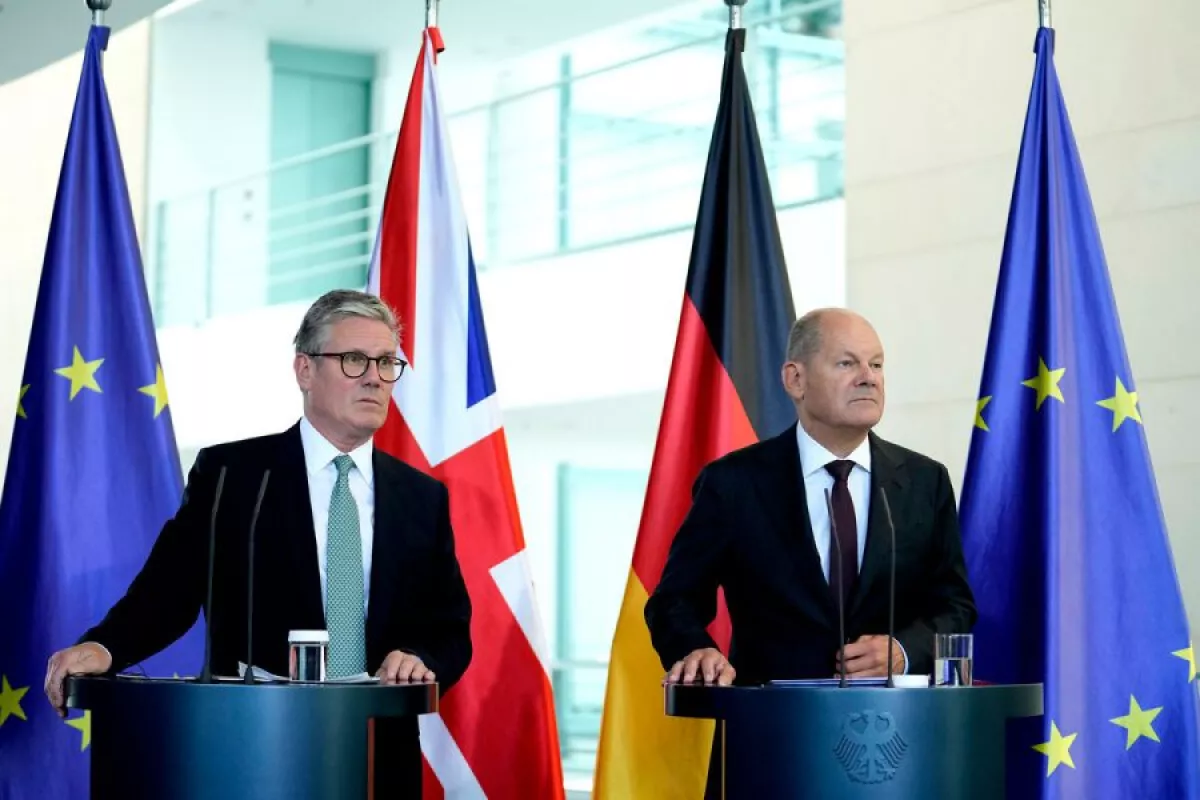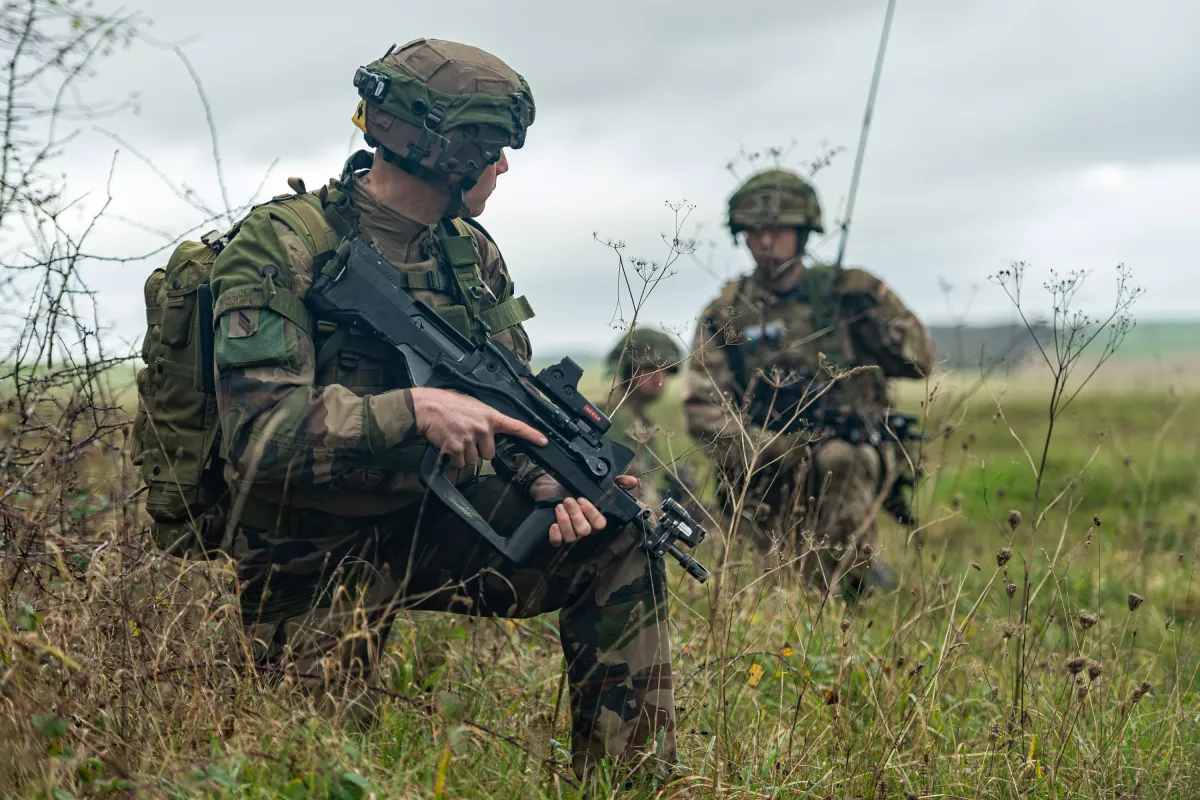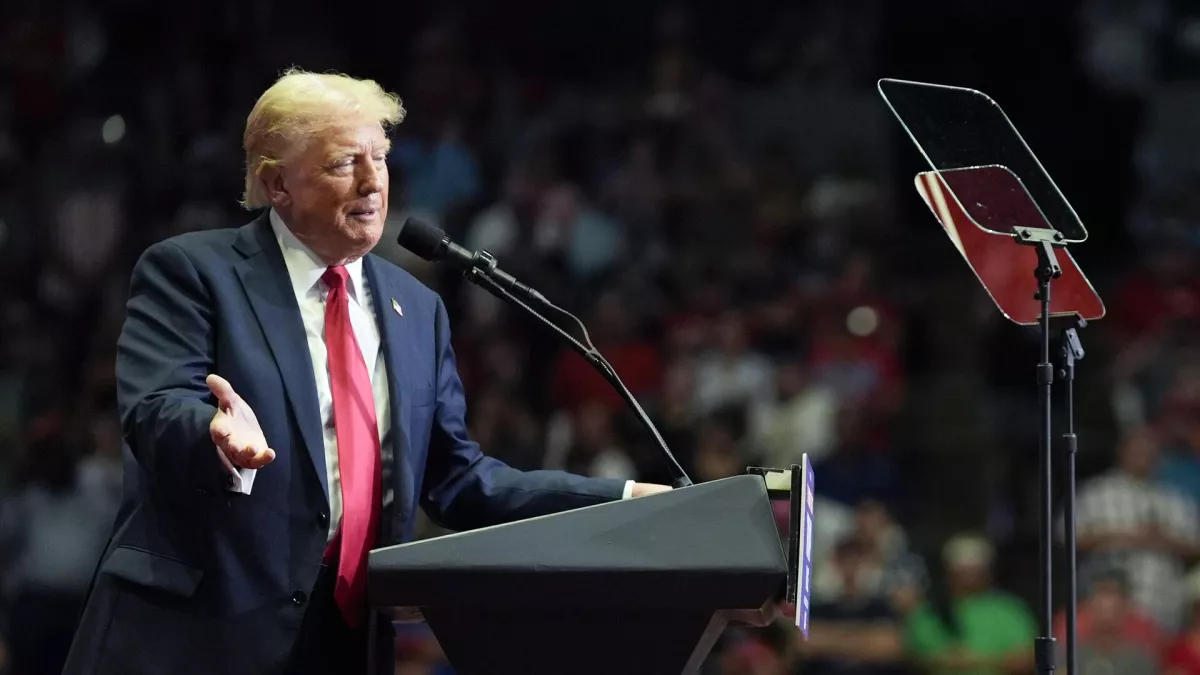Under Trump’s shadow: Germany and UK move past rivalries to rebuild relations What keeps Europe up at night?
In the middle of this week, German Chancellor Olaf Scholz and British Prime Minister Keir Starmer, on his inaugural visit to Berlin, unveiled plans to forge a new treaty aimed at enhancing cooperation between their countries in the areas of economy, defence, and security. Additionally, Starmer advocated for a “reset” of relations with the European Union, a proposal that Scholz welcomed, expressing his willingness to “accept London’s outstretched hand.”

Despite seeming paradoxical, the intertwined aspects of Brexit and renewed cooperation between the UK and EU were highlighted during British Prime Minister Keir Starmer’s first visit to Berlin this week. Both leaders acknowledged that Brexit remains in place for the foreseeable future but signalled a commitment to strengthening UK-EU relations.
Starmer emphasized the need to “reset” the relationship with the EU, criticizing the previous Conservative government for leaving a “damaged” legacy that now requires repair. He framed this as a “once-in-a-generation” opportunity to mend and enhance ties.
Aligned with this reset, Starmer expressed a clear and confident desire to finalize a comprehensive bilateral agreement with Germany. He described the proposed treaty as “ambitious and far-reaching,” covering key areas such as trade, the economy, defence, and more. Commentators have noted that this new level of bilateral military cooperation, along with advancements in energy, trade, and finance, could mirror the scale of the 2010 Lancaster House agreements between the UK and France, which included the creation of the Combined Joint Expeditionary Force (CJEF).

There is no spontaneity in this diplomatic dance, as evidenced by British Foreign Secretary David Lemmy’s visit to Germany back in July, a carefully planned affair. During his meeting with German Foreign Minister Annalena Baerbock, Lemmy addressed the need to “strengthen European support for NATO” and improve aid effectiveness for Ukraine. It was on this occasion that Lemmy emphasized the necessity of a “reset” in relations with European allies. The German Foreign Ministry responded by highlighting the UK's role as “an indispensable part of Europe” and underscoring the ongoing efforts to determine “how London can draw closer to the EU.”
Olaf Scholz’s remarks in this context were telling, as he described the relationship between London and Berlin as a “long-standing and trusting partnership marked by shared values and reliable friendship.” The forthcoming treaty, he noted, will reflect the UK and Germany’s status as “particularly close partners in Europe,” reinforcing their commitment to this cooperation for the benefit of their nations, Europe, and transatlantic security. Both Scholz and Starmer vowed to “continue to support Ukraine and strengthen European defence” in their joint statement.
The backdrop and focus of this meeting, especially the highlighted points, have led many analysts to suggest that the primary concern is the potential return of Donald Trump to the U.S. presidency. European leaders have expressed significant reservations about Trump’s proposals regarding NATO’s budget distribution and his stance on the Russian-Ukrainian conflict. In this context, observers recall NATO Secretary General Jens Stoltenberg’s comment that the UK was a key driving force behind NATO’s creation.
Germany and the UK are not isolated in this stance. The NATO multinational brigade in Latvia has recently opened a new base in Adazi, funded by Canada and Spain with a $7 million investment. In Rukla, Lithuania, the local brigade’s infrastructure is being expanded, with a planned deployment set for 2026. Additionally, Poland has announced a dramatic increase in defence spending, proposing a record 40 billion euros for its 2025 budget, which is just under 5% of its GDP.

In this context, many experts suggest that the fear of Donald Trump's potential victory in the U.S. presidential election is bringing European leaders closer together, fostering a newfound understanding between London and Berlin despite their historical geopolitical differences. This sentiment is also evident in the relationship between Britain and France, which Starmer visited immediately after his trip to Berlin.
Thus, behind the recent strategic manoeuvres of Europe's leading capitals, a palpable apprehension regarding Trump's return to power is evident. As a result, the focus on building European relations through a military lens is likely to persist until November 2024. Indeed, Trump's influence has profoundly unsettled Europe.








